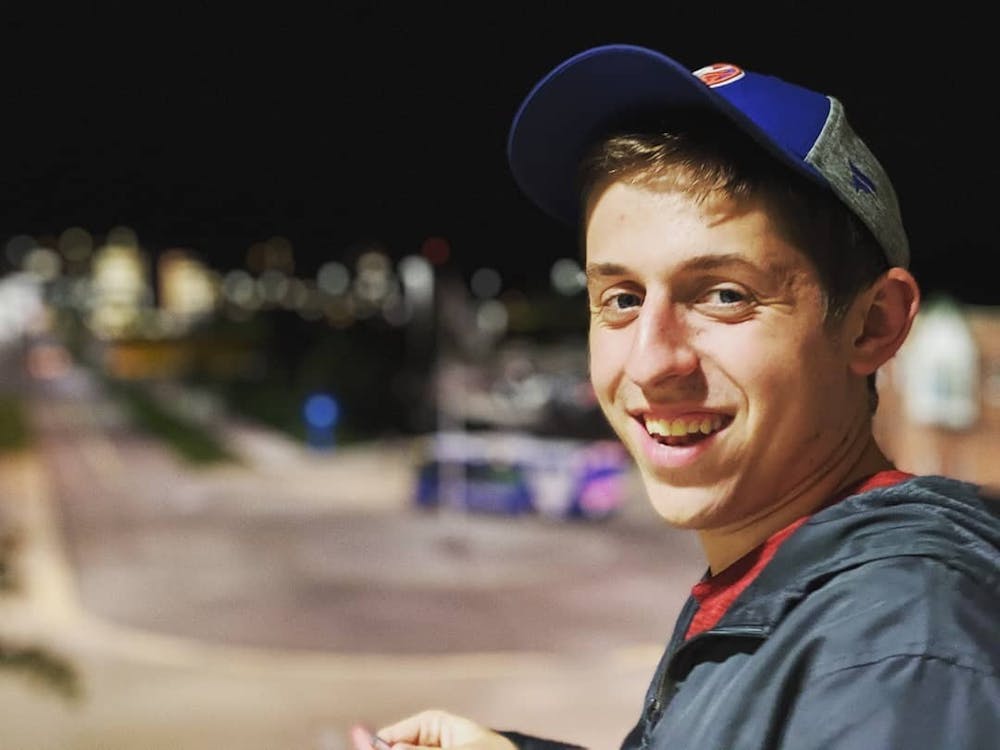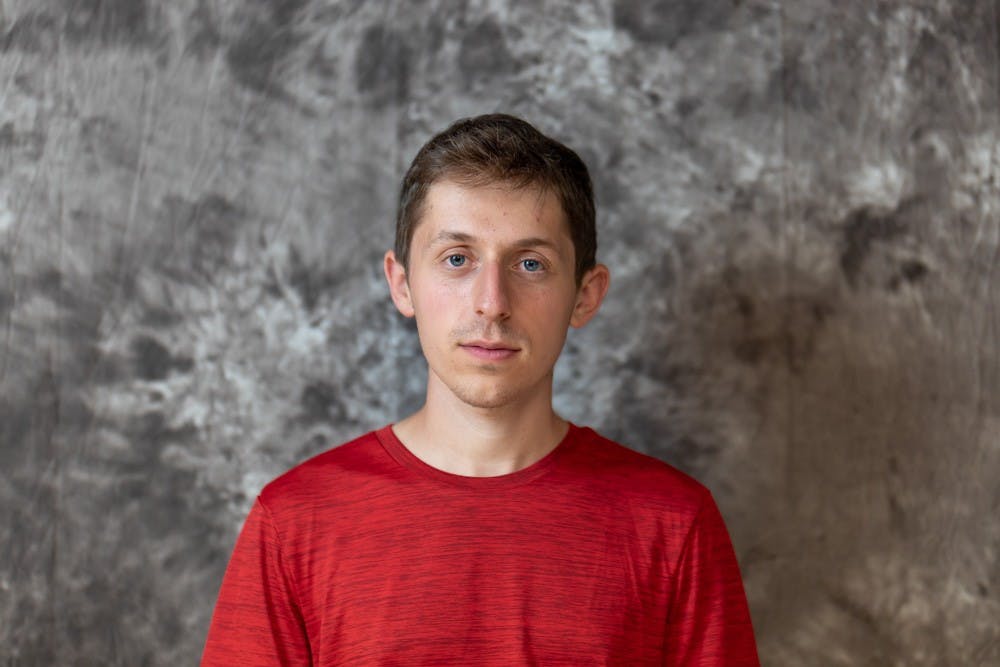College has taught me a lot of things:
It’s taught me how to write a feature story.
It’s taught me how to understand the distribution of health outcomes in populations.
But more than anything else, it’s taught me that everyone is going through something — and that more often than not, we don’t have the slightest clue.
I’ve written about it in these pages before, but it breaks my heart every time one of my friends opens up about their struggles, not because they had the courage to share their trials and traumas, but because I often had no idea they were experiencing them in the first place.
Sometimes, I had no idea they were struggling at all.
That, to me, is the scariest part of the conversation surrounding mental health. So often, when we talk about this topic, we are referring to people with mental illness, as defined by the Diagnostic and Statistical Manual of Mental Disorders. We’re talking about our friends and family members who have been diagnosed as depressed, or bipolar, or schizophrenic.
And those people deserve the attention. They deserve the support and resources. They deserve the world.
But I think we would be remiss not to also mention the other 75% of the population that hasn’t been diagnosed with a mental disorder, but still struggles nonetheless to get through the day. The segment of the population that maybe doesn’t scream “therapy” or “counseling,” but could still benefit from social and communal support.
The segment of the population — the entire population, really — that suffers from loneliness, normative stress and grief, and yet is often cast aside because those aren’t classified as mental disorders by the DSM-5.
The segment of the population that often struggles in silence.
I’ve reported extensively on mental health, and it never fails to astound me just how many people are affected by these ailments. I’m talking about the international student adjusting to a new country and the domestic student struggling to fit in — but also the student-athlete who is overwhelmed by their rigorous training schedule, the sorority member who finds themselves fighting to get out of the shadows of their peers, the club president who feels an empty pit in their stomach despite being surrounded by countless others.
I’m talking about myself, someone who has a tremendous support system and is involved with numerous campus organizations, yet experiences many of the aforementioned problems.
We need to reach these students, too.
In fact, I would argue that in certain cases, these students need these resources more than ever. We often see these people as our “strong” friends; there’s no way they need the help, we tell ourselves. Look how many likes they get on their Instagram posts. Look how many people are in their lives. Look how often they go to parties.
There’s no way they can be unhappy. Just look at them.
But I think that’s the cruel irony here. Sometimes, it’s the people who look the happiest who are struggling the most inside. As a student journalist, one of my — admittedly upsetting — jobs is to talk to friends and family members after tragedy strikes.
It never fails to amaze me how often I hear these refrains:
There weren’t any signs.
I didn’t know they felt that way.
I wish I would have known.
I think it’s incumbent on us as a university to figure out a way to reach these students — the other 75% — who you can argue maybe don’t need counseling or therapy, but who could still greatly benefit from other programs and initiatives.
I’m so tired of hearing my “strong” friends talk about how much they’re struggling. Not because they’re struggling; that’s normal and acceptable. And not because they’re choosing to open up about their struggles; that requires great courage and I’m always grateful when they do it. But because we, as a university, don’t seem to be doing enough about it.
In my conversations with Brian Hamluk, our new vice president for student life, I have sensed a real commitment to helping these students. In my conversations with Sharon Mitchell, our counseling services director, I’ve sensed a similar — if less pronounced — commitment.
But I want to hear it from President Tripathi and Provost Weber.
Heck, I don’t want to hear it; I want to see it.
I want to see real progress. I want to see real initiatives — mental health first aid, community-building activities that reach all students, Health Promotion programs that students are aware of — come to life on this campus. I want to see a concerted effort to reach these students as they fight unimaginable fights.
Because too many “strong” students are suffering in silence right now. And we have an opportunity to help them.
Let’s not squander that opportunity.
Justin Weiss is the managing editor and can be reached at justin.weiss@ubspectrum.com

Justin Weiss is The Spectrum's managing editor. In his free time, he can be found hiking, playing baseball or throwing things at his TV when his sports teams aren't winning. His words have appeared in Elite Sports New York and the Long Island Herald. He can be found on Twitter @Jwmlb1.





